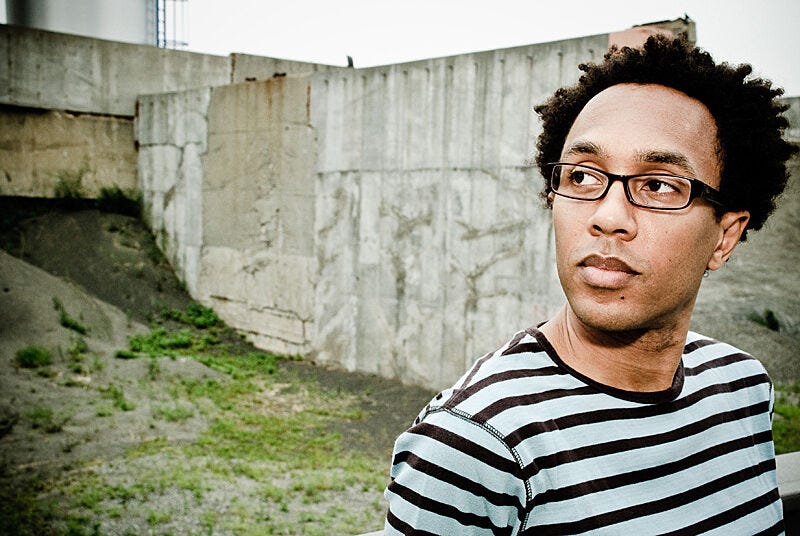Herb Sundays 19: Jace Clayton
Jace Clayton (aka DJ /rupture) has been a cultural bellwether for over 20 years with his international approach to sound on sound.
Link to playlist: Apple Music / Spotify
Art by Michael Cina
More on Jace Clayton: Instagram / Website
Jace Clayton (DJ /rupture) sees the connections between culture and music in a way no one else quite does, which has made him an in demand writer/producer/DJ/artist for over 20 years now. Clayton’s public arrival in the perilous and exciting 00’s world of recorded music instantly made him a bellwether of both the sound and friction that technology would continue to push into art. Seeing Jace (who I’ve known casually for over a decade) in the Netflix "This Is Pop" episode on Auto-Tune (where he elegantly explains why this sonic effect has resonated globally) reminded me to reach out.
For those not familiar, Clayton burst into the consciousness under his DJ /rupture alias with 2001’s Gold Teeth Thief, initially a free online mixtape which would later be named one of the "50 Records of the Year" by The Wire. The mix presented a new direction for DJ culture (43 tracks in 68 minutes), veering across genres including "breakcore, Arabic folk music, and pop.” The mix was startling not just in its sonic arsenal, but that it could even exist at all. The musical spoils of the web were put on display with Theif and the way it was made and distributed, at first for free to many thousands of people, was part of a movement toward a more porous music world between artists, fans, and semi-pro participants.
As a writer, Clayton’s abilities also excel. Google his obit for Lee “Scratch" Perry (who appears in this mix) and his recent work around the posthumously celebrated composer Julius Eastman are essential. From there, check his 2016 book, Uproot: Travels in 21st-Century Music and Digital Culture. It goes on. What has always made Jace’s work exciting to me is that everything is in play. There’s an interest in all music, both “folk” and pop, and there is seemingly little interest in what is traditionally canon. Who else could interview both DJ Khaled and Philip Glass (as he did for The Fader in 2012 and 2013, respectively) with the same openness and curiosity?
Understanding music through the lens of technology, not just of its making, but of its transmission and its amplification (both sonically and culturally) has led him to some marvelous places. Another aspect of /rupture-ism is an intense interest in regionality and how that has changed with technology. What is “local” now is different than 20 years ago due to globalization but the local sound can’t, and shouldn’t, be washed out.
Thinking as a DJ is not just about knowing what sounds good together but also about what Jace has called “activating music” which is what this playlist does. The melange of eras/cultures is something that an algorithm can’t and won’t serve us, it’s a human endeavor, and why the need for the DJ/selector will continue.
In putting this together, Claytonian Theory arose once again. Jace isn’t really on the major streaming services as a user, so we went back and forth to find out which songs we could find from youtube, which has become the bazaar of music culture (amidst myriad issues) from which we can find almost anything. After three rounds we got there, but it exposed, once again, that what we are offered/served isn’t a complete picture and it takes artists like Jace to help bring them back to us, from the digital aether.
I love Jace's vision as it obviously has an academic slant but not at the expense of pleasure. Satisfaction is always at the heart of it, but knowing why it satisfies is sometimes just as good. I *think* Clayton’s work is about not just what technology does to us, which has become the dog whistle of so much journalism, he’s interested in what WE do to technology (and music) which is far more interesting.
2016 PBS NewsHour feature.
Bonus: This Herb Sundays playlist pairs well with HS13 by Hua Hsu: Apple / Spotify





